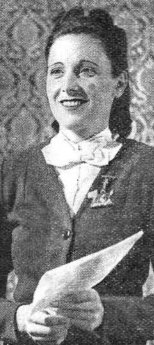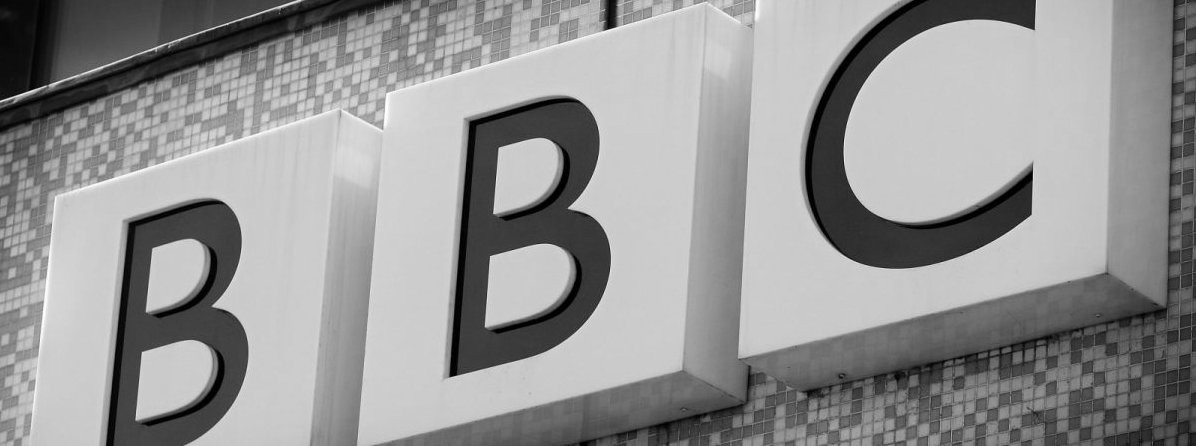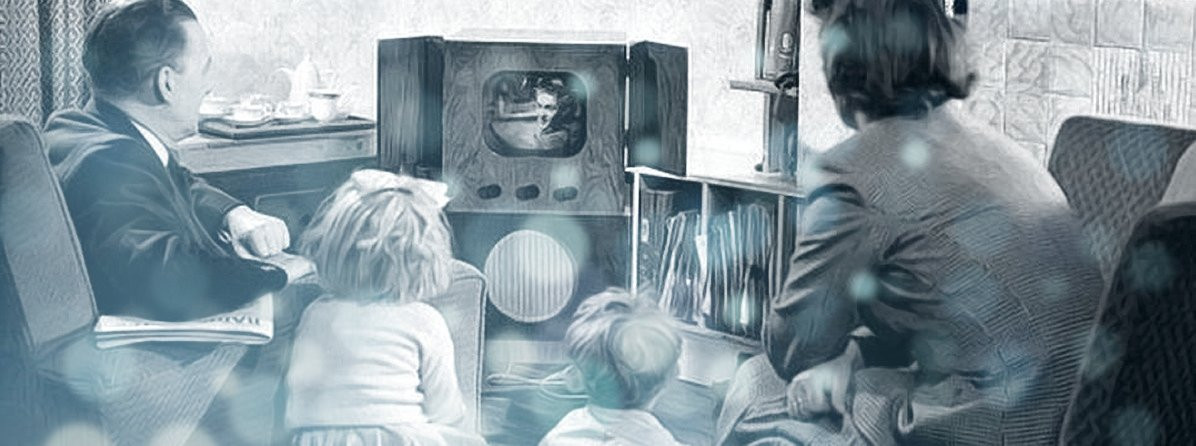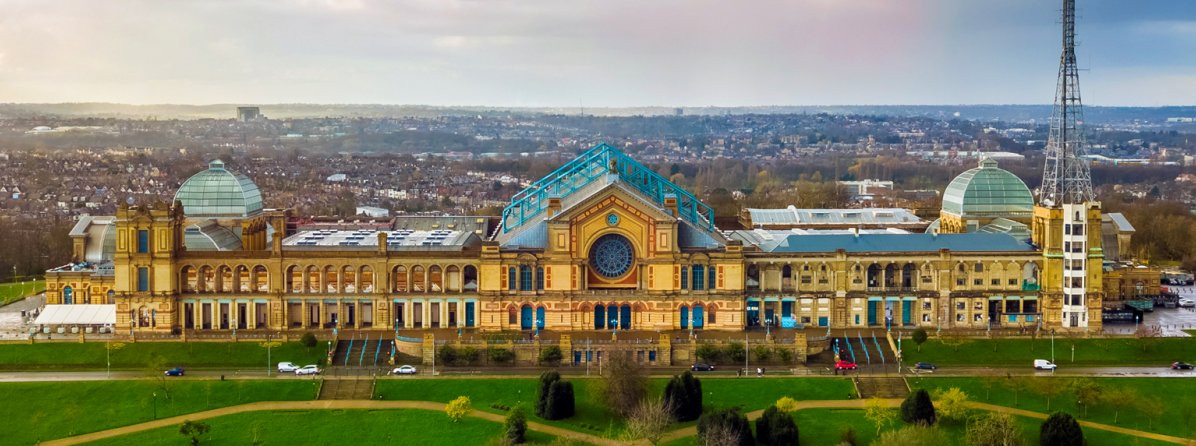
History of the BBC - Part 7
The Day the BBC Closed Down
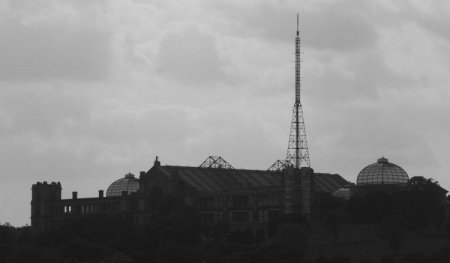
There is a popular misconception that at midday on 1 September 1939, in the middle of the Mickey Mouse cartoon Touchdown Mickey, BBC Television suddenly went off the air in mid broadcast and didn't return until the end of the Second World War, restarting with the same cartoon. The story has been repeated so many times that for many it has now become 'established fact'. Even at the BBC itself, where, during a tour of Broadcasting House a few years ago I heard our tour guide repeat the very same tale. Another story that has passed into urban legend is that BBC reporter Jasmine Bligh kicked off the resumption of broadcasting with the words, "As I was saying when we were so rudely interrupted..." even an official publication to mark the closure of Alexandra Palace years later did nothing to dispel the myth when it published the following:
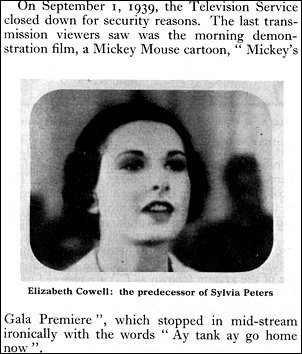
History has been rewritten because most historians have taken for granted that the days programming was as published in the Radio Times for the week commencing 25 August 1939:
11.0am-12.0 'Come and be Televised'
Interviewer, Elizabeth Cowell. Direct from Radiolympia.
3.0 Cabaret Interlude
with The Four Spallas (adagio)
Bennett and Williams (comedians)
O'Shea and Joan (tap dancers)
3.20 News Film
British Movietone News
3.30 Cartoon Film
'Touchdown Mickey'
However, there is a document in existence at the BBC Archive microfilm library at Caversham, which was discovered by Television Heaven contributor Malcolm Bachelor. The document is a broadcast log called a 'PasB' (Programme as Broadcast) and gives the precise running order for 1 September as was actually transmitted and not as publicised in the Radio Times. The original document, which is now a matter of public record, is shown below:
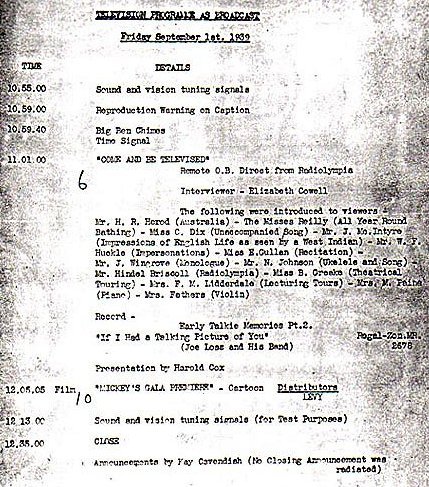
It is not known why Mickey's Gala Premiere replaced the intended Touchdown Mickey, nor why it was shown much earlier than the intended afternoon timeslot, but what the above document clearly shows is that rather than end programming suddenly and without warning in the middle of the cartoon's transmission, the station continued broadcasting "Sound and vision tuning signals for 'test purposes'" up until 12.35 and was followed by "announcements from Kay Cavendish."
When BBC television returned after the War, at 3pm, 7 June, 1946, Jasmine Bligh kicked off the resumption of television broadcasting with all the quiet stiff deportment of a BBC presenter and said to viewers, "Good afternoon everybody. How are you? Do you remember me, Jasmine Bligh...?" The BBC did not begin immediately with the Mickey Mouse cartoon. It was, however, broadcast from the very beginning some twenty minutes into programming.
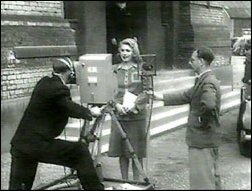
"Good afternoon everybody. How are you? Do you remember me, Jasmine Bligh...?"
The re-opening of BBC television: 3pm, 7 June, 1946
That really only leaves one mystery: If the BBC had been notified earlier that day that it was to go off the air for the duration of the war, or at least an interminable period of time, why did they deem it necessary to carry out the broadcast of sound and vision tuning signals? Perhaps this will become clearer in the next chapter...
Part 8: Alexandra Palace's Secret War
Source
Various BBC archives

